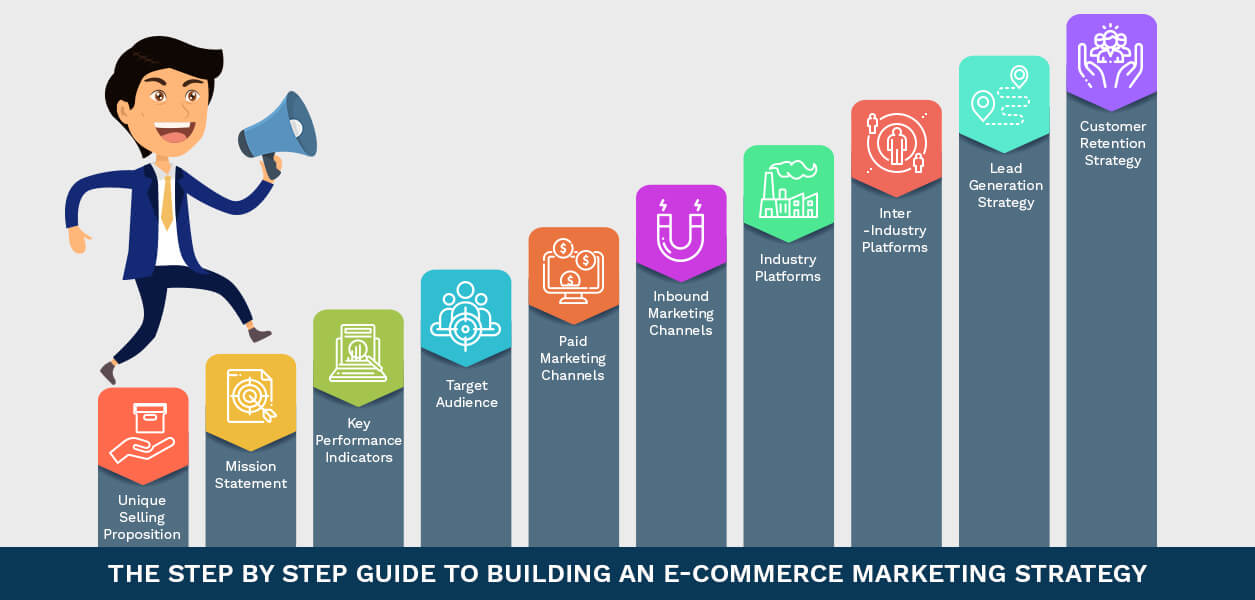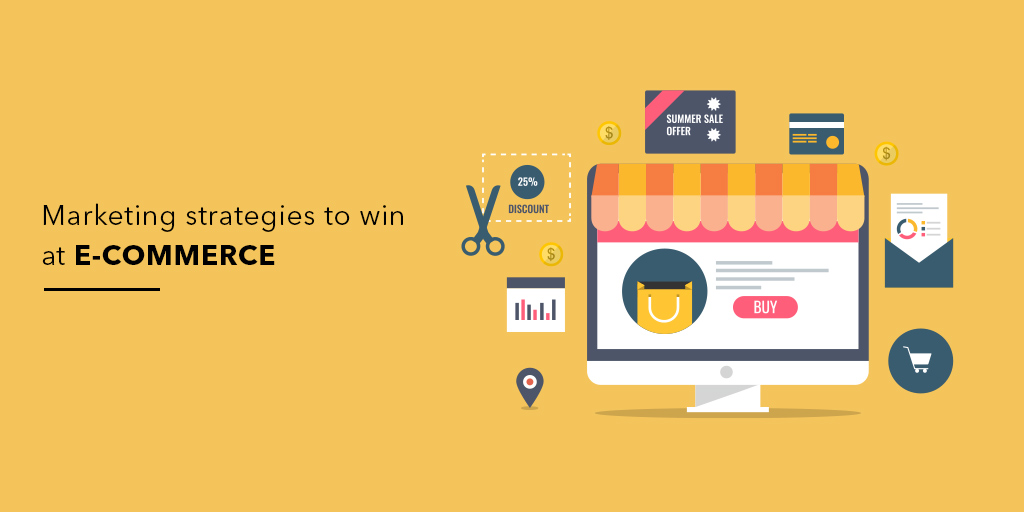In any kind of ecommerce marketing, creating an effective marketing strategy is really important. But it’s crucial to keep up with the most recent ecommerce marketing trends and techniques for your business, regardless of whether your online retail business is just getting off the ground or is at the point where it is maintaining a sizable customer base. For your brand, building and trying to launch an e-commerce website is a major accomplishment.
Therefore, it’s imperative to spend money on a website structure and e-commerce marketing plan that work. In addition to all the structure, SSL encryption helps you protect your traffic and fosters customer trust. If you’re looking for information on the most effective, tried-and-true methods as well as the most recent marketing strategies for e-commerce businesses. First you have to know what is Ecommerce Marketing?
What is Ecommerce Marketing?
Ecommerce marketing is the process of promoting and selling products or services online through various digital channels. The goal of ecommerce marketing is to drive traffic to an online store, convert visitors into customers, and retain those customers for repeat purchases.
This is achieved through a combination of techniques including search engine optimization (SEO), social media marketing, email marketing, content marketing, influencer marketing, and paid advertising (such as PPC or display ads).
Effective marketing strategies will reach the right audience with the right message at the right time, and to create a seamless and enjoyable shopping experience that builds customer loyalty.
What goes into creating an ecommerce marketing strategy?


Creating an effective marketing strategy involves several steps:
- Understanding your target audience: Conduct market research to identify your target audience, their demographics, and what motivates them to purchase.
- Defining your Unique Selling Proposition (USP): Determine what sets your products or services apart from your competition.
- Developing a branding strategy: Create a consistent brand image and message across all your marketing channels.
- Setting clear and realistic goals: Identify the specific objectives you want to achieve through your marketing efforts.
- Choosing the right channels: Determine the best channels to reach your target audience, such as email marketing, social media, search engine marketing (SEM), and influencer marketing.
- Creating a content marketing plan: Develop a content marketing plan that informs, educates, and engages your target audience.
- Measuring and analyzing results: Regularly track your marketing results, analyze the data, and adjust your strategy as needed.
- Continuously testing and optimizing: Continuously test and optimize your marketing strategies to improve their effectiveness over time.
Email Marketing Strategy for E-commerce
An email marketing strategy is an essential part of any ecommerce marketing plan. Here are some steps to develop an effective email marketing strategy:
- Build your email list: Encourage customers to sign up for your email list through opt-ins on your website, social media, and in-store.
- Segment your list: Segment your email list based on customer behavior, purchase history, and other demographic information.
- Personalize your emails: Personalize your emails with the recipient’s name, past purchase history, and other relevant information.
- Offer value: Provide value to your subscribers through promotions, exclusive content, and educational resources.
- Test, measure and optimize: Regularly test and measure the success of your email campaigns and optimize your strategy accordingly.
- Automate your email campaigns: Automate your email campaigns to save time and improve efficiency.
- Timing is key: Timing is crucial for email marketing success. Consider sending emails during off-peak hours to avoid getting lost in the inbox.
Digital Marketing for Ecommerce
A digital marketing strategy for e-commerce includes the following steps:
- Define your target audience: Conduct market research to understand who your target audience is, their needs, and how they behave online.
- Establish your goals: Determine what you want to achieve through your digital marketing efforts, such as increasing sales, building brand awareness, or acquiring new customers.
- Conduct a SWOT analysis: Evaluate your strengths, weaknesses, opportunities, and threats to identify areas for improvement.
- Choose the right channels: Decide on the most effective channels to reach your target audiences, such as social media, search engine optimization (SEO), search engine marketing (SEM), email marketing, and influencer marketing.
- Develop a content marketing plan: Create a content marketing plan that informs, educates, and engages your target audience.
- Optimize your website: Make sure your e-commerce website is optimized for search engines, mobile devices, and user experience.
- Utilize data and analytics: Use data and analytics tools to track the success of your digital marketing efforts and make informed decisions.
- Continuously test and optimize: Continuously test and optimize your digital marketing strategies to improve their effectiveness over time.
Content is also have an importance in ecommerce marketing strategy. For know about what kind of effect is have let’s read the up coming part.
Ecommerce Content Marketing Strategy
An effective e-commerce content marketing strategy typically includes the following components:
- Developing a clear understanding of your target audience and creating detailed buyer personas can help guide the creation of relevant and compelling content.
- Identify keywords that your target audience is searching for. Incorporate them into your website and content to help improve search engine visibility and drive traffic to your site.
- Regularly publish educational, informative, and entertaining blog posts. They can help establish your brand as a thought leader, build relationships with customers, and drive traffic to your site.
- Creating detailed and engaging product pages that clearly highlight the benefits of your products can help improve product discoverability and increase conversions.
- Creating short, attention-grabbing videos that showcase your products and educate your audience can help improve engagement and increase conversions.
- Regularly posting and sharing high-quality, relevant content on social media can help build brand awareness. It helps with engaging with customers and driving traffic to your site.
- Sending regular, targeted email campaigns to your subscribers can help build relationships, increase brand awareness, and drive sales.
- Encouraging customers to share reviews, photos, and videos of your products can help build social proof and increase conversions.
Conclusion
Creating an effective marketing strategy involves understanding your target audience, defining your Unique Selling Proposition (USP), choosing the right channels, and continuously testing and optimizing your efforts.
Set clear and realistic goals, develop a consistent brand image, and utilize data and analytics to track your success. An effective ecommerce marketing strategy can drive traffic, increase sales, and grow your brand. Stay up to date with industry trends and continuously evaluate and adjust your strategy to stay ahead of the competition.





















Leave a Reply
View Comments